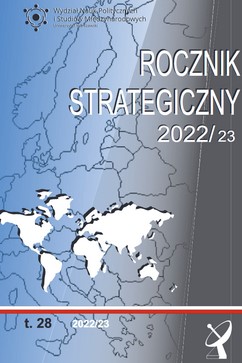Europa Wschodnia i Kaukaz Południowy: wobec rosyjskiej wojny w Ukrainie
Eastern Europe and Southern Caucasus: The response to Russia’s war in Ukraine
Author(s): Andrzej SzeptyckiSubject(s): Government/Political systems, Geopolitics, Peace and Conflict Studies, Russian Aggression against Ukraine
Published by: Wydawnictwo Naukowe Scholar Sp. z o.o.
Keywords: Eastern Europe; South Caucasus; Russia-Ukraine war;
Summary/Abstract: Russia’s full-scale aggression against Ukraine has had a significant impact on Eastern European and, to a more limited extent, South Caucasus countries, both Russia’s allies and the states it is conflicted with. The war with Russia has become, for obvious reasons, an unprecedented challenge for Ukraine, incomparable to other experiences of its three decades of independence. Contrary to Russia’s expectations (and those of many Western experts and commentators), Ukraine did not fall within a few days, but thanks to the support of American and European partners, it successfully faced the aggression. However, it has paid a terrible price in both humanitarian and economic terms. For Belarus, despite its close ties with Russia, the Russian aggression against Ukraine was a challenge both because of the reluctance of the Belarusian society towards a possible military involvement of Belarus in this conflict, and the new sanctions imposed on Belarus: therefore, the Belarusian authorities tried to live up to Russia’s expectations using the “everything but direct military involvement” strategy. Moldova had to face a significant influx of Ukrainian refugees and feared (as in 2014) that it might become another victim of Russia’s expansionist policy. Similar fears were shared by Georgia, with the difference that while Moldova took a rather unequivocally pro-Ukrainian position (despite refusing to supply arms), Georgia’s policy was ambivalent by definition, which, presumably, was aimed at meeting expectations and not alienating both Russia, and Ukraine and Western partners. The Russian- -Ukrainian war was a significant threat to Armenia, which actually lost the support of Russia – its only ally in the region, which forced a certain redefinition of its foreign policy. Only Azerbaijan saw the conflict as an opportunity, as Russia’s position in South Caucasus weakened due to its involvement in Ukraine. Thanks to this, it gradually implemented its agenda in the region, both in relation to Nagorno- -Karabakh and the Nakhchivan region.
Journal: Rocznik Strategiczny
- Issue Year: 2023
- Issue No: 28
- Page Range: 283-306
- Page Count: 24
- Language: Polish

